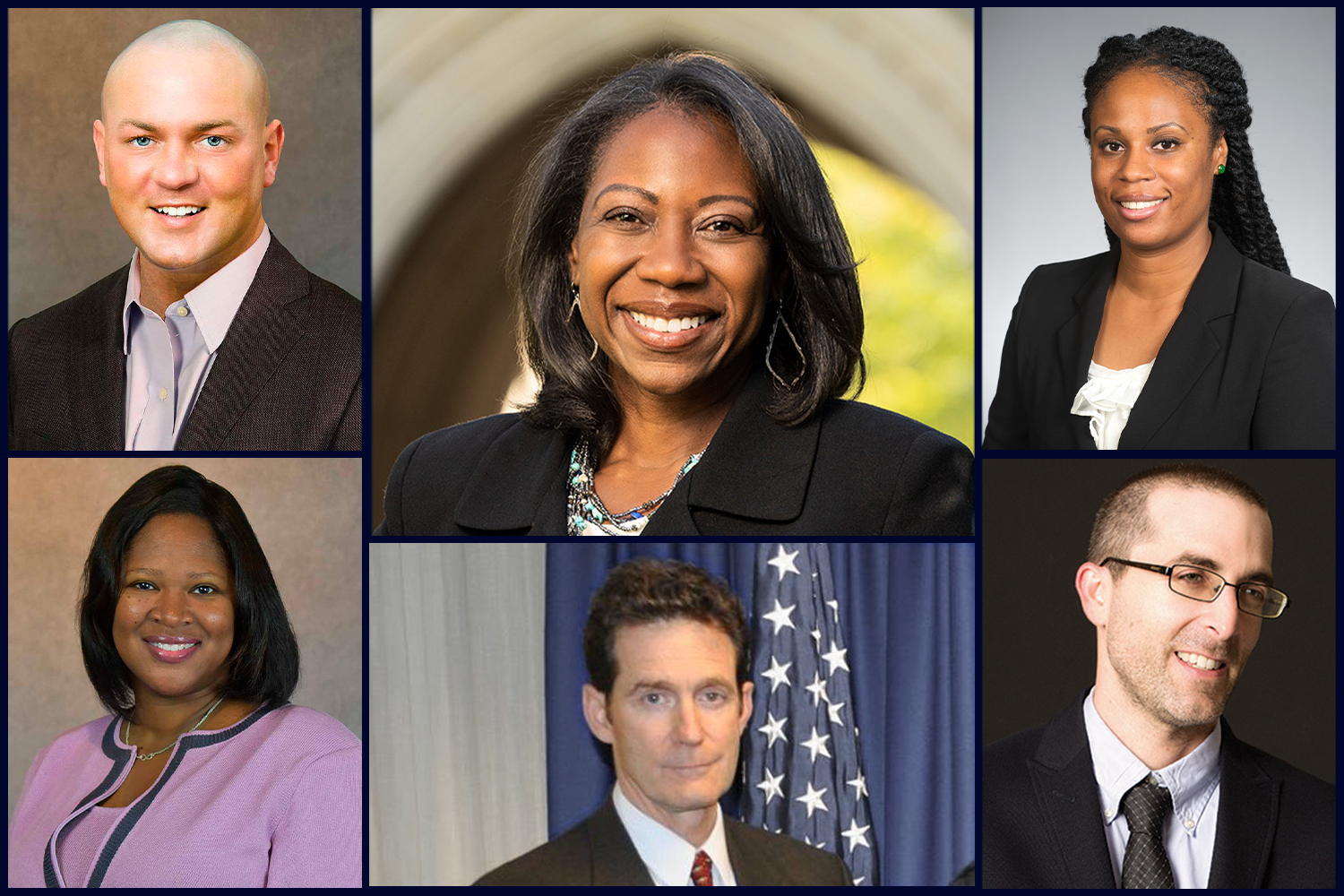There is a role for everyone—lawyers, law students and the general public—in seeking justice for victims of police violence and pressing for reform, panelists told the audience at a forum sponsored by the UConn School of Law on Thursday.
“The grassroots activists are out there and they can’t do it alone,” said Lonita Baker, a Louisville-based civil attorney. “They need lawyers…The activists are doing their part, it’s time to step up and do ours.”
The online panel, “Justice in America? Legal Accountability (or the Lack Thereof) Following Police Shootings in the Black Community,” featured UConn Law Professor Jamelia Morgan, Professor Colin Miller of the University of South Carolina School of Law, and Assistant United States Attorney Michael Gustafson ’86. They were joined by Baker and Sam Aguiar, both members of the legal team that negotiated a settlement for the family of Breonna Taylor, who was tragically killed by police in March. UConn Law Dean Eboni S. Nelson served as moderator.
Panelists talked about obstacles to reform, including qualified immunity, which protects police officers from liability for harmful actions; union contracts that shield them further; and no-knock warrants that allow police to enter private homes without warning. Legislative action to overcome those protections is just part of the solution, the panelists said.
Decriminalizing minor infractions and addressing the needs of people who are homeless or struggling with mental illness can reduce confrontations with police, Morgan said. “We ask police to do so much in society,” she said. “What would it look like to actually provide mental health care and provision communities so that police aren’t responding to these calls?”
Baker and Gustafson agreed that equipping police with body cameras is important, but officers must be required to use them. Miller suggested that law students can propose reform legislation and Aguiar told the audience that lawyers can do even more than represent individual clients who have been the victims of police violence.
“It’s not enough to get a settlement,” he said. “We need to be thinking about what we can do so that this never happens again.”
The problems discussed were real and pervasive, but the tone was hopeful, as panelists talked about how encouraged they have been by the passion and focused dedication of the next generation of lawyers and activists.
Baker noted that cellphone video has taught the public to be skeptical of police accounts of a confrontation. Miller pointed out that Breonna Taylor’s case has led to legislative reform on no-knock warrants and limits on qualified immunity. Aguiar said that there is momentum for reform, and Morgan agreed that the national conversation has shifted.
“I have great faith in real change coming about that will lead us to a more just society,” Nelson said. “And on behalf of all attendees, I thank our panelists for their informative and inspiring remarks.”
The event was co-sponsored by the Black Law Students Association and the Diversity Alliance at the UConn School of Law, the University of Connecticut Office of Diversity and Inclusion, the University of Connecticut Law School Alumni Association, and the George W. Crawford Black Bar Association.



